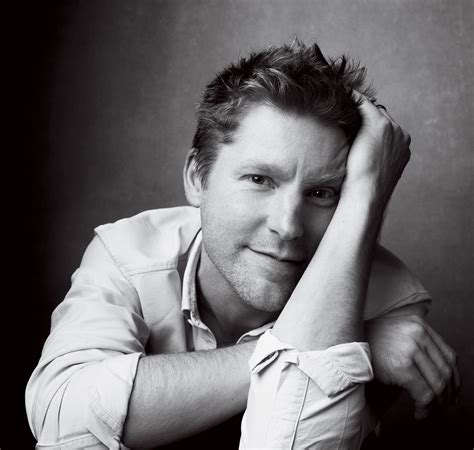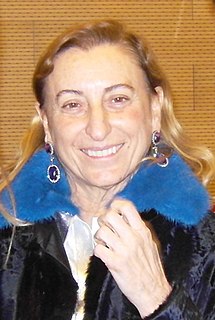A Quote by S. J. Rozan
I wanted a real profession. And I'd always been interested in architecture and in design and in, really, what makes things work. And understanding what's kind of behind the walls and why things stand up and some things don't.
Related Quotes
I realized that the reason why my head was so cluttered and why I was so unstable and not taking care of myself, all of these things, was that I was unhappy. If I wanted to get to a happier place and find some kind of peace, I was going to have to address problems with myself, things from my life up until that point that I hadn't dealt with: insecurities, fears, and those kinds of things.
I started to begin to be interested in architecture and design when I was 14 years old, which was pretty early in life. And then I would start to look at architectural magazines and I eventually went to the school of architecture too, but one of the things I learned very early is that an architect should be able to design anything from a spoon to the city.
Everyone needs some trial and error figuring out how it's gonna work for them. I could have gotten that out of the way a little sooner but I think you're totally right, the way I kind of think about things and the way I wanted to put myself out there doesn't fit the traditional side of things. I needed things like podcasts and YouTube and things that allow you to get it out there yourself and stand in the flames.
Something I always wanted to do, to capture that later half of the '70s. It's like the early half of the '70s is still the '60s, in that there's still kind of a playfulness and inventiveness in terms of design and the things that were going on in the culture. The second half, it got much more commodified. It's possibly the ugliest era of architecture and clothes and design in the entire 20th century, from 1975 to '81 or '82.
I think when things happen in our lives that we can't truly understand why they destroy us, it's because we can't truly understand or communicate it to anyone else. And that is what is destructive - you can't communicate it to the people that you love and it makes things deteriorate. Or you're hiding from yourself, or you're hiding from somebody else, and that was really fascinating to me... that life isn't like the movies and you can't always point to one thing and explain why you did things that ended up hurting you.
I remember kind of doing early acting and thinking, 'God, they don't paint behind the sets.' It's a bit of a shame, really - 'Oh, what's on the other side of this wall? Oh, you can see the plywood.' I was really disappointed. I just thought that these things were real, from watching things as a kid.
I remember kind of doing early acting and thinking, "God, they don't paint behind the sets." It's a bit of a shame, really - "Oh, what's on the other side of this wall? Oh, you can see the plywood." I was really disappointed. I just thought that these things were real, from watching things as a kid.





































